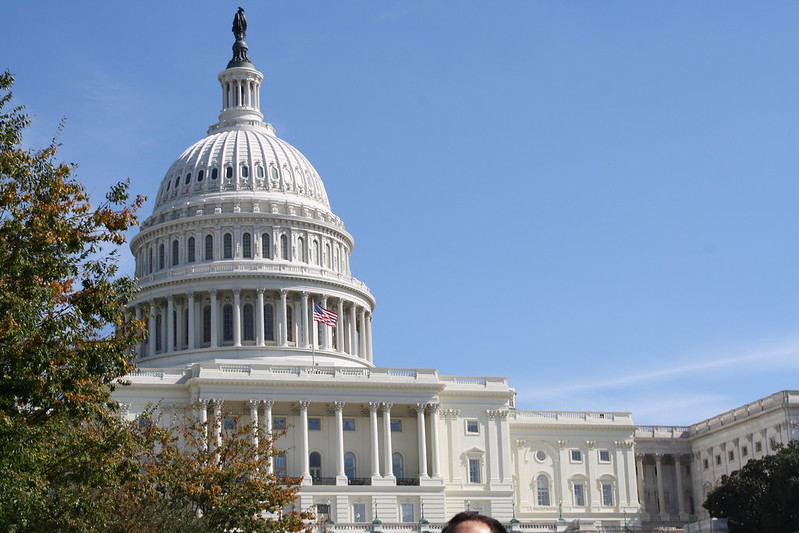There’s an ongoing debate within the Democratic Party over an issue of central importance in the upcoming midterms: what is the best way to appeal to voters? Specifically, many have questioned whether Democrats need to moderate their rhetoric on issues like race and immigration if they want to appeal to swing voters.
Based largely off the ideas of the analyst David Shor, a group of Democratic commentators and strategists have developed the theory known as “popularism,” which argues that Democrats must focus on their most popular issues while trying to prevent unpopular issues from becoming salient with the electorate.
While this theory may initially seem reasonable, it’s not without its critics. In fact, once you break down what popularism means in practice, several problems emerge. For example, public opinion isn’t static. Unpopular policies can become popular after they’re passed and vice versa. What about policies that are unpopular but have important substantive benefits? Granting Washington D.C., Puerto Rico and the Virgin Islands statehood, for example, might be unpopular. But it’d be morally just and bolster Democratic power by adding three new states all likely to lean Democrat. Conversely, what about a policy that is popular but egregiously unethical? This highlights that focusing on what is popular is a lot more complicated than it sounds.
To their credit, popularists like Shor acknowledge many of these criticisms and have adjusted their views accordingly. The issue, however, is that all these qualifications serve to drain the theory of any significance.
As Osita Nwanevu observes in The New Republic, a definition of popularism that considered all these criticisms would read something like “Democrats should say and do popular things with the reasonable and obvious caveats that some popular things might be too terrible to support, that some divisive or unpopular things might be worthwhile, that some popular things might become unpopular, and that some unpopular things might become popular.” How is this substantively different from simply saying, “Democrats should engage in politics”?
Even on this point, Shor and others will agree that much of what they’re saying is based on a more traditional approach to Democratic politics seen from strategists like James Carville during President Bill Clinton’s term. Its main critique is of progressives who push Democratic candidates to adopt positions they believe are both unfeasible and unpopular.
The slogan “defund the police” is a common example brought up by popularists. Shor argues that the slogan was responsible for declining support for Biden amongst Hispanic voters during the 2020 presidential campaign. Matthew Yglesias, another supporter of popularism, criticized the effort by progressives during the 2020 campaign to get Biden to oppose the Hyde Amendment — which prohibits federal funding towards abortions — despite there being no chance of the Hyde Amendment being repealed even if Biden won.
This is the crux of the disagreement between popularism and its critics. The central claim behind Yglesias and Shor’s criticisms is that Democrats can and should downplay certain unpopular issues like race if they want to succeed. Popularism also rests on the idea that, as Klein states, “Democrats should do a lot of polling to figure out which of their views are popular and which are not popular, and then they should talk about the popular stuff and shut up about the unpopular stuff.” This limited view of messaging in its attempt to take a realist stance on electoral politics serves only to constrain our notions of what is possible and foreclose bolder attempts at persuasion.
A more nuanced perspective can be found from the researcher and campaigner Anat Shenker-Osorio. Rejecting one of the central premises of popularism, she believes that “it’s not the job of a good message to say what is popular, it is the job of a good message to make popular what we need said.”
The approach she believes will best accomplish this is the race-class narrative, a template for messaging developed through years of research with the goal of facilitating messaging that is effective in appealing to strategic constituencies. There are three steps to forming a message under this structure.
First, the message highlights a value that is held across race and class. Second, the message identifies a villain that is using race and/or class to divide people against otherwise popular goals. Then the message calls for solidarity across race and class to oppose these villains and advance policies that will benefit the majority.
The race-class narrative offers a welcome alternative to the timid centrism of popularism. Building Democratic power has become an ever more urgent matter as Republicans continue to erode our core institutions. If Democrats are going to stage a vigorous defense of our democracy, it won’t be through a popularist retreat to the center. This will only ensure Democratic defeats in the future. As Shenker-Osorio explains, “The fact of the matter is that the Democratic base is largely people of color, and if we are not attending to issues of racial justice, climate, women’s rights, immigrant rights, etc., we have a mobilization problem.”
It may be easier to run on popular ideas, but Democrats must recognize that it is the work of politics to make certain issues popular. Limiting our notion of politics to a reflexive mirroring of popular opinion to gain votes is only a recipe for cowardice and surrender.
Benjamin Scnurr can be reached at [email protected] and followed on Twitter @Ben_Schnurr.



















